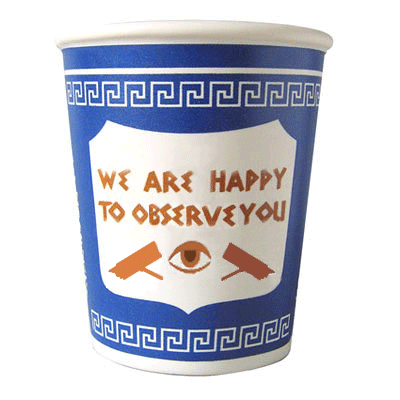I'm finding that this type of platform is well suited to some forms of engagement and not others. It's very well suited to experimentation on a variety of scales, but maybe not for displaying costly works of art (though some may disagree with that).
Of course there is an existing history of mobile museums which are exhibits in flatbed trucks. This is focusing on exhibitions with a more participatory bent:
The Pop-Up Museum of Queer History
Now just because you may *not* be queer doesn't mean there isn't anything to glean from this. Think this museum provides an excellent model for how a history museum can enrich and engage:
"The Pop-Up Museum of Queer History is a grassroots organization that transforms spaces into temporary installations celebrating the rich, long, and largely unknown histories of lesbian, gay, bisexual, and transgender people. We believe that our community – and especially our youth – deserve to know our history. If you don’t know you have a past, how can you believe you have a future?"
The Mobile Arts Platform
MAP is the ultimate mash-up of popp-up-art-installation-craft-camp-concert-on-the-street. They have created a platform that allows them to make cultural events and installations on the street:
"The Mobile Arts Platform (MAP) is comprised of two large-scale, interactive sculptures that are activated by a mobile exhibitions program. MAP brings together Peter Foucault’s Fal-Core Van – a retrofitted 1963 Ford Falcon – and Chris Treggiari’s Mobile Art Trailer in locations throughout the Bay Area. MAP creates an autonomous exhibition space, an artistic research lab where a cross pollination of mediums and genres can occur, be accessible to the public, and create strong bonds with partner communities. MAP events include video screenings, visual art, performance art, live music, interactive artworks, and culinary art."
The Black History Mobile Museum
The vision for this museum is to bring the subject matter via the museum to the people through a mobile platform that also allows him to create flexible and tailored exhibitions. They can range from racist artifacts to hip-hop and sports:
"For the past 20 years, the Black History 101 Mobile Museum has acquired thousands of original artifacts of Black memorabilia that date from slavery to Hip Hop culture. The Black History 101 Mobile Museum travels to colleges, universities, K-12 schools, conferences, and cultural events across the country."
What made these projects stand out was their inherent sense of experimentation, their ability to sustain, and their DIY approach. I'm highlighting them here because I want to support the idea that museums can be informal and wonderful.




